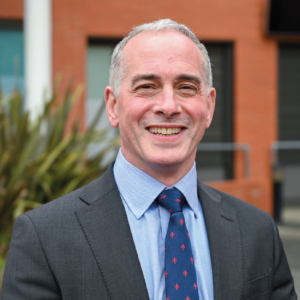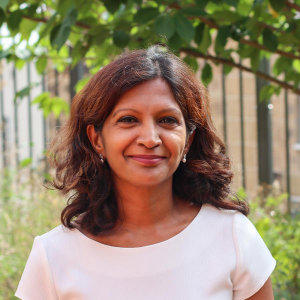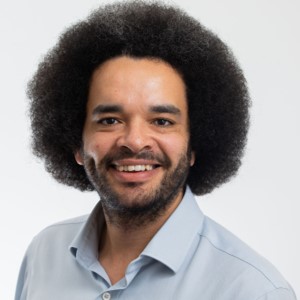CHT2025 SPEAKERS
CONFERENCE CHAIRS
PROF PAUL DIMITRI
CHT Conference Founder; Professor of Child Health and Director of Innovation, Sheffield Children’s NHS Foundation Trust; Clinical Director, NIHR HRC in Paediatrics and Child Health
PROF MEENA BALASUBRAMANIAN
Professor of Medical Genetics and Genomic Medicine, University of Sheffield; Clinical Director for Research, Sheffield Children’s NHS Foundation Trust; Executive Director, SCYPHeR (Sheffield Children and Young People Health Research) Initiative
MR DAUDA BAPPA
Research Theme Manager, Great Ormond Street Hospital Biomedical Research Centre
CONFERENCE SPEAKERS
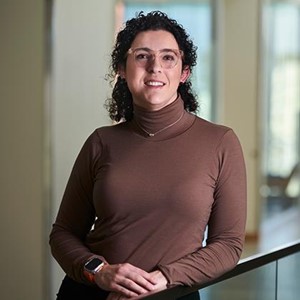
Elizabeth is an Assistant Professor (tenure track) at Montana State University- Mark & Robyn Jones College of Nursing in Bozeman, Montana. She teaches Design of Healthcare Delivery Systems, an interprofessional graduate course offering with College of Nursing (Clinical Nurse Leader and DNP students) and College of Engineering students (industrial, mechanical, healthcare systems engineering students) to evaluate quality and efficiency in the delivery of patient care. Her research includes technology innovation and digital health device development for clinical trial participant safety management, with funding awarded from the Montana State University/U.S. Economic Development Administration, American Nurses Association, NIH, Genentech Innovation Fund, and via the National Science Foundation- National Innovation Corps program. She is part of the Blueprint Engine- Tough Tech Program at MIT. Her service includes Chair for the Research Committee of the International Association of Clinical Research Nurses, President-Elect for the Nursing Institute of Healthcare Design, Coalition for Health AI Health System Advisory Board, and member of the American Nurses Association Innovation Advisory Committee for Technology + Medical Devices. Prior to her current role at Montana State University, Elizabeth was a clinical research nurse, clinical trial manager, and pharmaceutical industry global early clinical development manager supporting pediatric endocrinology and adult oncology.
DR ELIZABETH JOHNSON
Assistant Professor, Montana State University; Co-Director, Biomedical Innovation for Research and Development (Biored) Hub
“Together, Research is Everyone’s Knowledge: Adaptation of the UK YPAG Model for U.S. Rural, Frontier, and Indigenous Communities”
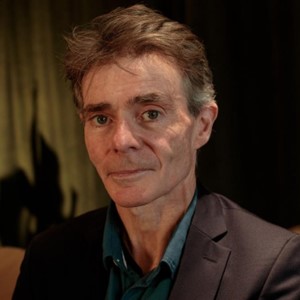
Paul trained in medicine and then psychiatry before taking a PhD in cognitive neuroscience. He is the Bernard Wolfe Professor of Health Neuroscience at the University of Cambridge and a Wellcome Trust Investigator as well as an honorary consultant psychiatrist with Cambridgeshire and Peterborough NHS Foundation Trust.
He is interested in neural processes underlying perception and belief how these may be altered in psychosis. He is excited about the potential impact of games on cognitive neuroscience and psychiatry and has worked closely with the Cambridge video game studio, Ninja Theory Ltd, in the development of Hellblade. Senua’s Sacrifice and the follow-up game. Senua’s Saga. He continues to collaborate with them in exploring a scientific basis for using games to enhance mental health.
PROF PAUL FLETCHER
Consultant Psychiatrist and Professor of Health Neuroscience, University of Cambridge
“The power of video games in representing mental illness”
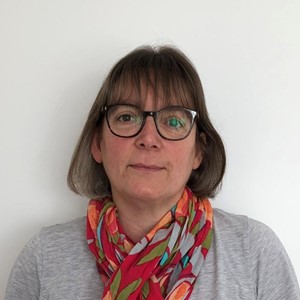
Sarah is an experienced research scientist and has been the Business Manager at CHEATA, a part of NUH NHS Trust since 2016. CHEATA supports med-tech developers to gather evidence for NHS. She is responsible for the day-to-day running of CHEATA in addition to selected project delivery including value propositions, literature searches and clinical evaluation reports. Sarah has a PhD in Biochemistry and carried out post-doctoral research at Oxford and Leicester Universities before spending over 10 years at AstraZeneca as an Experimental Pathologist in the Respiratory and Inflammation Therapy area. Prior to CHEATA, Sarah was responsible for Healthcare and Medical Devices at Pera Technology.
DR SARAH BOLTON
Business Manager, Centre for Healthcare Equipment and Technology Adoption (CHEATA), Nottingham University Hospitals NHS Trust
“What does the NHS want from medical device manufacturers?”
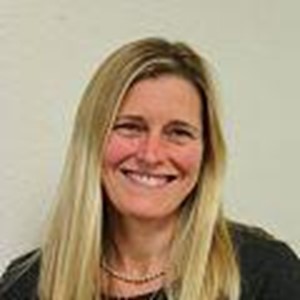
Dr Janet Bouttell is a health economist who has worked extensively with developers of health technologies at the early stages of development. A qualified chartered accountant, Janet moved into academia in 2015. She completed a PhD at the University of Glasgow followed by an Innovate UK funded post doc with a developer of molecular diagnostic technologies. Her work focused on methods of health technology assessment to facilitate the development of medical devices which are likely to make a clinical difference for patients and clinicians and offer value for money for the health service provider. In June 2023, Janet started work at the Centre for Healthcare Equipment and Technology Adoption (CHEATA) based in the Clinical Engineering Department of Nottingham University Hospitals acute NHS trust. CHEATA work within the East Midlands innovation infrastructure to support innovators throughout the development of health technologies. CHEATA undertake clinical pathway analysis, develop value propositions and perform early health economic analysis. Janet is co-chair of an HTAi working group on the terminology of early HTA, a member of the evidence review panel for the Scottish Health Technologies Group and sits on the NIHR Research for Patient Benefit grant committee for the East Midlands.
DR JANET BOUTTELL
Health Economist, Centre for Healthcare Equipment and Technology Adoption (CHEATA), Nottingham University Hospitals NHS Trust
“How early Health Technology Assessment can derisk your technology development project”
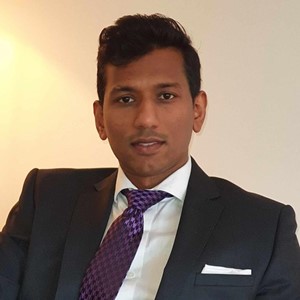
From the very start of his career, Saran Muthiah has been driven by a deep passion for helping children with neurodisabilities reach their fullest potential. Over the years, Saran worked tirelessly to specialise—and eventually super-specialize—in paediatric neurodisability, becoming one of the few specialist paediatric physiotherapists to develop and lead a bespoke movement disorder service for children in the NHS, UK. He is working at the intersection of clinical care and digital innovation to transform NHS care services.
As the founder of EnrichMyCare, an AI-powered digital platform supporting neurodisability and neurodevelopmental care, he is driving new approaches to care coordination, intelligent triaging, and patient engagement. Recognised by NHS England’s Clinical Entrepreneur Programme, Saran is striving to develop technology that makes a real-world impact.
He holds an Executive MBA with distinction from Warwick Business School and a Master’s in Computer Science, with part of his MBA completed at Chicago Booth School of Business. With a strong mix of clinical, technical, and leadership experience, he is working to shape the future of paediatric digital healthcare.
MR SARAN MUTHIAH
NHS Clinical Entrepreneur and Specialist Paediatric Physiotherapist; CEO and Founder, Enrich My Care
“From Innovation to Impact: How EnrichMyCare is Reshaping Paediatric Care”
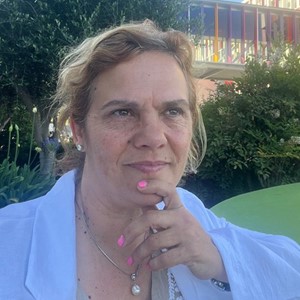
Meritxell Teixidó holds a PhD in Organic Chemistry from the University of Barcelona (UB) and an eMBA in Entrepreneurship, Innovation and International Business from UOC. At a scientific level, her field is the synthesis of peptides and the discovery of peptides capable of crossing biological barriers and she was responsible for this research line at the IRB Barcelona during more than 15 years, where she co-directed 10 doctoral theses, published more than 50 articles and participated in 9 patents.
After dedicating more than 15 years to biomedical research at IRB Barcelona, trying to improve the arrival of drugs to the brain by crossing the blood-brain barrier that protects it. She decided to jump more barriers and be the CEO/CSO of Gate2Brain SL. in order to bring technology closer to patients, a challenge and an honor. Jumping barriers is perhaps the common thread that describes her, combining science and innovation with a new vision on leadership, for which she received the spanish Woman Startup Award 2022 – Inspiration.
DR MERITXELL TEIXIDO
CEO and Co-Founder, Gate2Brain
“BBB shuttles to efficiently transport drugs to the brain”
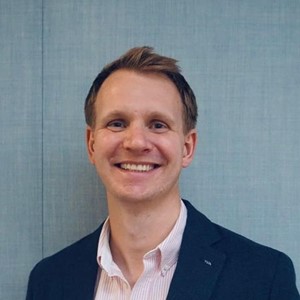
Dr. Chris Evans is the CEO and co-founder of Little Journey, a health-tech company revolutionising paediatric healthcare and clinical trials with its patient experience and engagement platform.
With over 12 years of clinical experience as an anaesthetic doctor and researcher – with focus on peri-procedural anxiety – Little Journey’s mission is to promote better health for all children through data-driven, personalised care.
Little Journey has partnered with the LEGO Foundation to create innovative solutions that support neurodiverse children, ensuring inclusive and accessible care for all. It can support children of different ages through a variety of healthcare procedures. The platform is also used globally in paediatric clinical trials, serving as an integrated participant support system.
DR CHRIS EVANS
CEO, Little Journey
“Little Journey: The evolution”
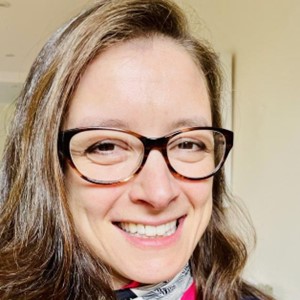
I am a Wellcome Trust Senior Clinical Research Fellow in Paediatric Infectious Diseases, and an honorary consultant in Paediatric Infectious Diseases at Imperial College Healthcare NHS Trust. I work between the UK and Harare, Zimbabwe on a portfolio of studies aimed at improving diagnosis, management and prevention of neonatal sepsis in low-resource settings. I’m on particularly interested in how we can improve infection prevention and control (IPC) and limit the spread of anti-microbial resistance, despite the challenges of working with few and intermittent resources.
Within my Fellowship, I aim to develop an AI-enabled clinical decision support tool to safely reduce antibiotic use in newborns in low-resource settings. Alongside the tool development, we are working with clinicians to explore how their context impacts on antibiotic decision-making, and with families to understand how we can better involve them in antibiotic decision-making for their babies. I work with a multidisciplinary international team based between University College London led by Prof Michelle Heys, Zimbabwe and Malawi which has co-developed Neotree, a digital quality improvement tool aiming to support clinicians in low-resource settings care for vulnerable neonates while capturing data. Since 2018 we have captured data on >37,000 neonates and trained >500 clinicians in Malawi and Zimbabwe. We have set up a charity to support wider implementation of Neotree beyond the research setting, and have received funding from the Wellcome Trust, UNICEF, the UK Foreign, Commonwealth and Development Office, The Bill and Melinda Gates Foundation and the National Institute for Health and Care Research.
DR FELICITY FITZGERALD
Wellcome Trust Senior Clinical Research Fellow, Imperial College London
“Rethinking Neonatal Sepsis in Southern Africa”
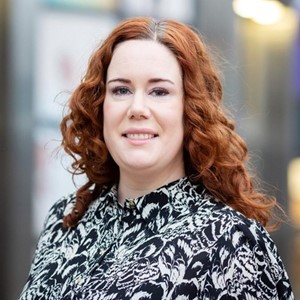
Fiona Sotir is a senior registrar in Paediatric Dentistry at Charles Clifford Dental Hospital. She completed her NIHR funded PhD study ‘No Need(le) To Worry’ in 2024, co-designing a web based resource for needle fear with young people, parents and healthcare professionals. Her research interests focus on managing procedural anxiety in children and young people.
DR FIONA SOTIR
Specialist Registrar in Paediatric Dentistry, Charles Clifford Dental Hospital
“Children’s oral health and technology – are we falling behind the times?”
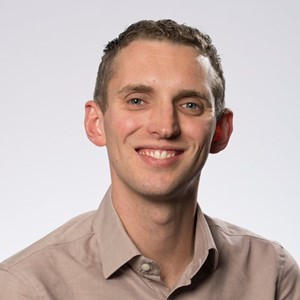
Jude is the Programme Director for the National Centre for Child Health Technology (NCCHT), currently on secondment from his substantive role as Associate Director – Transformation. Jude has worked in the NHS for over 15 years and joined Sheffield Children’s in 2013 to establish the Service Improvement team within the Trust.
Jude is leading the team who are bringing the National Centre Child Health Technology (NCCHT) to life. The NCCHT will be a place where we will design, create, test and put into practice child health technologies, as well as providing excellent, state-of-the-art, patient care.
Jude is an experienced senior leader, specialising in complex strategic change and healthcare improvement, using a range of Programme Management, Quality Improvement and Service Transformation skills to improve care.
MR JUDE STONE
Programme Director, National Centre for Child Health Technology
“National Centre for Child Health Technology”
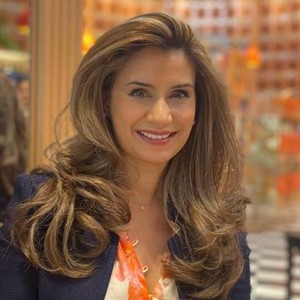
With a steadfast commitment to leveraging technology for healthcare, Dr Visram’s research at Great Ormond Street Hospital’s DRIVE innovation hub has been a journey of blending advancements in science and technology with clinical expertise to explore and evaluate new human-machine interactions. The team has pioneered the use of a collaborative learning strategy to create a future where technology empathetically meets the needs of healthcare professionals and young patients.
Dr Visram has made extensive contributions to the field of healthcare leadership and entrepreneurship as a TEDx curator and organiser, journal editor at the Royal College of Physicians and mentor on the KQ Labs Accelerator at the Francis Crick Institute. She holds a special interest in international knowledge exchange. As a co-founder of the Industry Exchange Network for Good, she has cultivated leadership in tech philanthropy, facilitating partnerships with industry and global NGOs to drive social impact through technology.
DR SHEENA VISRAM
Chair Of IXN For Good, University College London
“Human-centred healthcare innovation”
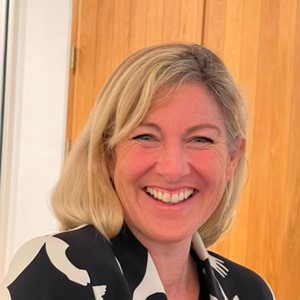
Tamsin is a paediatrician in Cambridge and founder of Hear Glue Ear (www.hearglueear.co.uk). She put together a hearing device and app for children with the most common type of hearing loss, which won many paediatric, audiology and innovation awards. It also led her to work in low income countries to support childhood hearing loss, and involvement with WHO World Hearing Forum. This led her to become involved in digital health education and innovation in NHS, becoming clinical lead for the NHS clinical entrepreneur programme (www.nhscep.com).
DR TAMSIN HOLLAND BROWN
Paediatrician, Brookfields Hospital, Cambridgeshire Community Services NHS Trust
“Baby Steps to Big Breakthroughs: Nurturing Bright Ideas in Paediatrics”
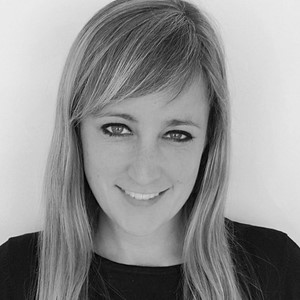
Dr Rachael Grimaldi is a senior anaesthetic registrar at Frimley Park Hospital NHS Foundation Trust, Co-Founder and CEO of CardMedic, Fellow on the NHS Innovation Accelerator and NHS Clinical Entrepreneur Programme, and until recently, was the Associate Medical Director of the Brighton Marathon for 7 years. Rachael has a long-held interest in human factors, patient safety and communication; winning several prizes for previous work on developing a Safer Intensive Care Unit Handover, before going on to win multiple prizes for her social impact start-up, CardMedic.
CardMedic is a growing and disruptive UK/US-based innovative digital health company focused on value-based care, by reducing health inequities due to communication barriers. Designed in rapid response to the global communication crisis in healthcare at the start of the pandemic, CardMedic has quickly evolved into a flexible tool to overcome any communication barrier in healthcare – language, visual, hearing or cognitive impairment, or poor health literacy. CardMedic is supporting NHS Trusts meet legislative requirements in accessible communication by providing content in multiple languages, sign language videos, easy read, read-aloud, digital consent integration and live interpreters.
DR RACHAEL GRIMALDI
Co-Founder And CEO, Cardmedic / NHS Anaesthetist
“Disaster Innovation and My Accidental Journey to Clinical Entrepreneurship of Leveraging Digital Technology to Overcome Communication Barriers in Healthcare”
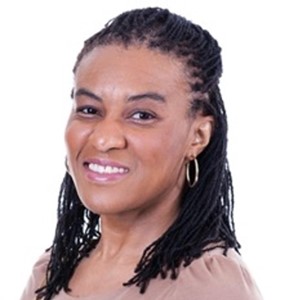
Professor Amaka C Offiah is Chair in Paediatric Musculoskeletal Imaging and Consultant Paediatric Radiologist at the University of Sheffield and Sheffield Children’s NHS Foundation Trust, with specialist interest in suspected inflicted injury in children and skeletal dysplasias. She has published over 175 peer reviewed publications, book chapters and books and given over 300 invited national and international lectures. Professor Offiah’s main research interest lies in the imaging of suspected child abuse and skeletal dysplasias and in methods of determining which children have fragile bones prone to fracture and which do not, including optimising current and development of novel methods of distinguishing brittle from normal bones, understanding the mechanisms of injury in infants and young children and improving the detection and dating of the subtle fractures seen in abuse. Other areas of research relate to developing artificial intelligence tools for the detection of accidental, inflicted and vertebral fractures.
Professor Offiah is the first female Managing Editor of the journal “Pediatric Radiology”, Convener of the Skeletal Dysplasia Group for Teaching and Research, Chairperson of the European Society of Pediatric Radiology Child Abuse Taskforce and Chair of the International Guidelines for Imaging in Suspected Physical Abuse (IGISPA) consensus group.
PROFESSOR AMAKA OFFIAH
Professor Of Paediatric Musculoskeletal Imaging/honorary Consultant Paediatric Radiologist, University of Sheffield
Shared session: “Using digital twins to assess bone strength in children“
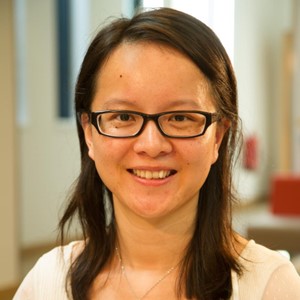
Dr Li is now a senior lecturer in the School of Mechanical, Aerospace and Civil Engineering, and also a member of the INSGINEO Institute at the University of Sheffield. Her main research interest is in continuum finite element modelling of the musculoskeletal system, focusing on two applications: (1) juvenile bone mechanics and (2) pregnancy complications. She has extensive experience in creating digital twin models of children’s bones based on medical images. These models are used in a wide range of applications from investigating juvenile bone mechanics, to predicting injury mechanisms for both normal skeleton and those with pathology. Her work on pregnancy complications involved the use of digital twin models to investigate cervical mechanics in those mothers at risk of pre-term birth, and the texture analysis of placenta to differentiate placenta pathology in MRI scans assisted by AI.
DR LI XINSHAN (SHANNON)
Senior Lecturer, University of Sheffield
Shared session: “Using digital twins to assess bone strength in children“
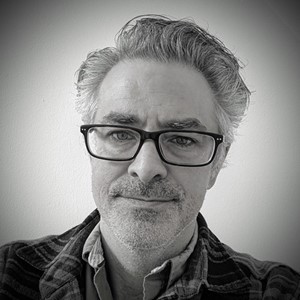
Marcus Baw is a GP, clinical informatician and software developer based in Yorkshire. He is an advocate of open source software and open standards for healthcare, working exclusively on open source projects. He is a member of the RCPCH Incubator core team.
DR MARCUS BAW
GP, Software Developer, and Clinical Informatician, Royal College of Paediatrics and Child Health
“The RCPCH Incubator: A New Model for Royal Colleges: Best Practice As Code”
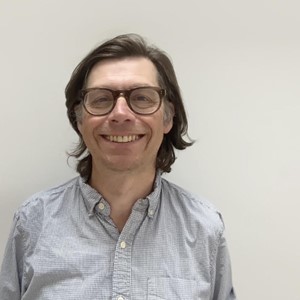
Simon is a children’s doctor and software developer. He has worked for over 15 years in paediatric diabetes and endocrinology at King’s College Hospital in south London, and now also with the Royal College of Paediatrics and Child Health to produce the electronic national children’s growth charts, found in every newborn’s ‘Red Book’.
DR SIMON CHAPMAN
Consultant Paediatrician, Royal College of Paediatrics and Child Health
“Children’s Growth Charts: from paper to digital”
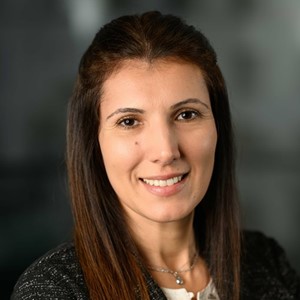
Seray is a Postdoctoral Research Associate at King’s College London, within the Department of Informatics. She brings interdisciplinary training from Speech and Language Therapy, Human Computer Interaction and Multimodal Discourse to research how the design and use of digital technology shapes social interaction.
She has held UKRI ESRC personal funding at doctoral and postdoctoral levels to pursue research about social interaction and technology design for children with disabilities. Through her work, she has made contributions to designing digital supports for in-person social interaction that involves children and augmentative and alternative communication devices, and separately, parent-child interventions that can promote positive mental health.
DR SERAY IBRAHIM
Research Associate, King’s College London
“Designing Digital Tools for Parenting & In-the-Moment Support”
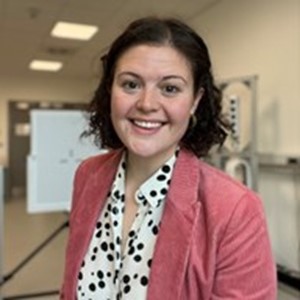
Dr Alice Bullas is a Senior Research Fellow in advanced human body measurement, specialising in manual and 3D surface imaging anthropometry, in the Sports Engineering Research Group (SERG) of the School of Sport at Sheffield Hallam University (SHU). Alice’s work uses 3D surface imaging to critically evaluate existing anthropometric methods, measures and standards across health and sport. Alice was recently awarded a UKRI Future Leaders Fellowship to explore the most accurate and suitable anthropometrics through which to assess factors (adiposity and health) causally associated with obesity in children.
DR ALICE BULLAS
Senior Research Fellow, Sheffield Hallam University
“Measuring the Future: Innovative Approaches to Child Body Measurement in Obesity Research”
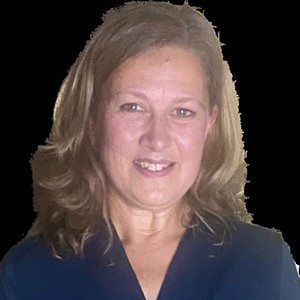
Heather is consultant in Paediatric Respiratory and Sleep Medicine at Sheffield Children’s Hospital, having trained at Alder Hey and Melbourne Children’s Hospitals. She leads the sleep service in Sheffield, managing a comprehensive range of sleep disorders and the 5-bedroomed Sheffield Sleep House. Heather holds an honorary chair with The University of Sheffield in recognition of her collaborative work in the field of technological solutions for children with long-term conditions and is the theme lead for the NIHR HealthTech Research Centre for Children and Young People. Heather has led a number of NIHR and MRC-funded research and innovation projects and has collaborated with many national and international higher education and industry partners.
PROFESSOR HEATHER ELPHICK
Consultant in Paediatric Respiratory and Sleep Medicine, Sheffield Children’s NHS Foundation Trust
Shared session on the NIHR HRC-PCH: “Long-Term Conditions Theme”
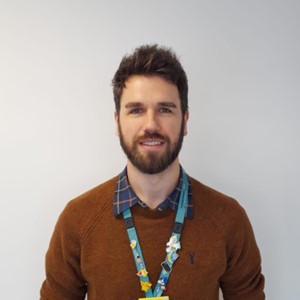
Steve is a Principal Clinical Psychologist working at Sheffield Children’s Hospital. Steve works primarily into the Cystic Fibrosis and Complications of Excess Weight Service while also developing and running the self-referral initiative called The Lucy Project.
Within his work Steve has a keen interest in the integration of technology into mental health services. The focus of this work has been in both the use of technology to support intervention but also to enhance clinical workflows and efficiency which free up clinician time away from admin and process.
DR STEPHEN JONES
Principal Clinical Psychologist, Sheffield Children’s NHS Foundation Trust
“Integrating technology into Psychometric Outcomes in Paediatric settings”
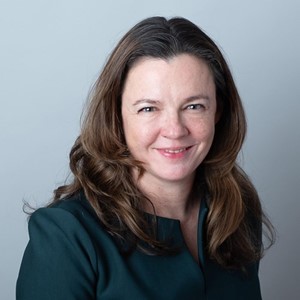
Michelle Heys is a clinician-academic with a background in paediatrics, public health, and global child health. She is an NIHR Global Health Research Professor and Professor of Global Child Health at University College London (UCL). Her research focuses on strengthening health systems—including community-based systems—to reduce inequities in the health and development of children and young people globally.
Michelle has led and contributed to interdisciplinary research across sub-Saharan Africa, South Asia, and the UK, collaborating with academic institutions, governments, and international organisations. Her work includes the co-development and evaluation of complex interventions, implementation science, and mixed methods to inform evidence-based policy and programming. She has secured competitive funding and has published extensively in high-impact, peer-reviewed journals.
A key strand of her research explores the role of digital innovations in improving care. In the UK, Michelle co-leads the CHATA (Children with Autism Technology-Enabled Assessment) project, which uses digital tools to improve early diagnosis and assessment of autism. She is also lead of the Neotree project, a digital health platform to improve newborn care in low-income settings. Michelle is committed to equitable, community-engaged approaches and mentoring early-career researchers. Her work is grounded in equity, co-production, and contextually relevant, scalable solutions.
PROFESSOR MICHELLE HEYS
NIHR and UCL Professor of Global Child Health, UCL Great Ormond Street Institute of Child Health
“Transforming child Health: leveraging global health lessons to drive equity, diversity, and inclusion through digital innovation”
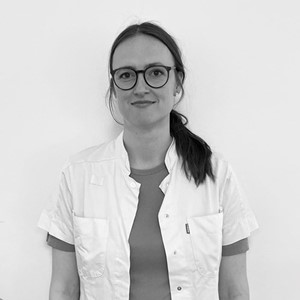
Lærke is a physiotherapist with a master’s degree in health science and a PhD candidate at Mary Elizabeths Hospital (MARYs), part of University Hospital Rigshospitalet in Copenhagen, Denmark.
MARYs is a new hospital building at Rigshospitalet dedicated to children, adolescents, pregnant women and their families. Currently under construction, it is expected to open in 2027 (www.rigshospitalet.dk/maryelizabethshospital/english/Sider/default.aspx).
Lærke is part of a research group at MARYs that investigate research fields such as children’s rights, patient involvement and the role of play during hospitalisation. Her research in-vestigates functional rehabilitation, digital play, physical activity and sedentary behaviour among children and adolescents in hospital settings. Her research bridges clinical practice and technology to support improved health outcomes for young patients.
LÆRKE WINTHER
Physiotherapist, MScHS, PhD candidate, Rigshospitalet
“Digital play interventions for rehabilitation and promoting physical activity among children and adolescents in hospital settings”
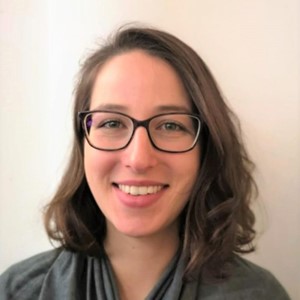
I am a population data scientist in the Child Health Informatics Group at UCL Great Ormond Street Institute of Child Health and the NIHR GOSH Biomedical Research Centre. My research uses routinely collected administrative data (e.g.: primary and secondary care records, education records, birth and death certificates) to study outcomes of children and their families. My research interests include health and education outcomes of children with complex health needs, perinatal and infant health and international comparison.
DR ANIA ZYLBERSZTEJN
Senior Research Fellow In Population Data Science, UCL Great Ormond Street Institute of Child Health
Shared session: “Linking national health and education data for child health research: introducing the ECHILD database”
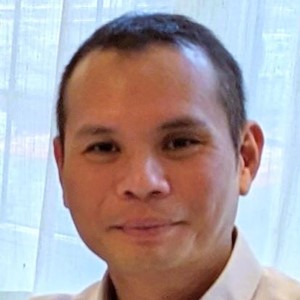
I am a researcher with the NIHR Great Ormond Street Hospital Biomedical Research Centre based at UCL GOS Institute of Child Health. My work involves using linked data from national databases to study health and developmental trajectories of children with rare or complex inborn conditions. I also collaborate with the European Network of population-based registries for the epidemiological surveillance of congenital anomalies (EUROCAT).
DR JOACHIM TAN
Senior Research Fellow In Health Data Science, UCL Great Ormond Street Institute Of Child Health
Shared session: “Linking national health and education databases for insights into child health: introducing the ECHILD database”
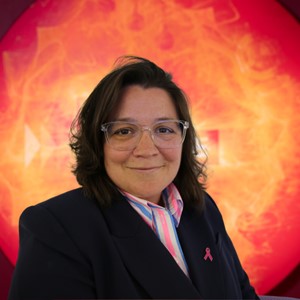
Dr Rebecca Pope is a Clinical Neuroscientist & Roche UK’s Digital & Data Science Innovation Lead. Rebecca’s focus is working with the NHS, government, regulators, clinicians and patients on how we can bring the advanced technologies that we’re used to using in our everyday lives, like Artificial Intelligence, into healthcare, at scale. She established and co-leads the Roche UK and Great Ormond Street Hospital 5-yr partnership and is part of multiple partnerships focusing on AI and scalable digital health solutions across the patient pathway within Oncology, Ophthalmology, Neurology & and Cardiovascular-metabolic disease.
She is also an honorary Senior Research Fellow and PhD supervisor in AI at UCL, TEDx speaker on the application of AI within the NHS and has been consistently voted as one of ‘The Most Influential Women in UK Tech’. Rebecca published a number of academic research papers and is the recipient of National awards.
Rebecca is deeply passionate about ED&I in STEM & society and is part of several initiatives & networks that encourage an inclusive environment where everyone feels empowered. In 2021, Rebecca established the Roche UK Health MBA Scholarship for underrepresented groups.
DR REBECCA POPE
UK Digital & Data Science Innovation Lead, Roche Products Limited
Shared session on Artificial Intelligence in Paediatric Healthcare: “AI in Paediatric Care: From Code to Clinic”
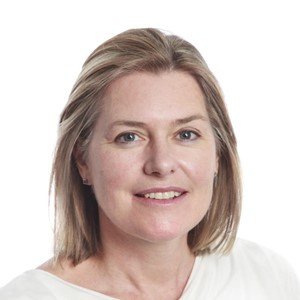
Louise is a consultant paediatric ophthalmologist in Cambridge and affiliated associate professor at the University of Cambridge. She has been driven to innovate by the clinical need to improve early detection of conditions which cause preventable visual impairment in children.
She has experienced the whole journey between ideation and adoption with her web-app DigiVis DVA, Software as a Medical Device, which enables accurate asynchronous self-assessment of visual acuity in children. Louise has also developed a novel photo-screener suitable for detecting serious structural eye conditions like cataract and retinal detachment in infants and non-verbal children with ASD. As founding director of two companies, she has gained useful insight into IP, regulatory and commercial strategies, and hopes to use her experience of the highs, lows and barriers along the way to help other clinical innovators navigate around the potholes to ensure that families benefit from innovation in healthcare.
DR LOUISE ALLEN
Consultant Paediatric Ophthalmologist, Cambridge University Hospitals NHS Foundation Trust
“It’s not all about the idea! Tackling implementation challenges in healthcare”
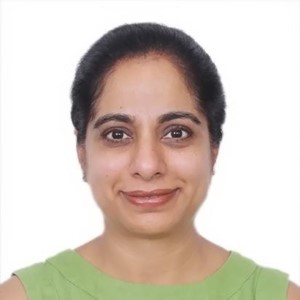
Dr Priya Narula is a Consultant Paediatric Gastroenterologist, Trust Clinical Lead for Healthcare Transition and Director of Postgraduate Medical Education at the Sheffield Children’s Hospital, UK.
Priya developed and established a central transition team at Sheffield Children’s Hospital and led the introduction of innovative service developments to support colleagues deliver high quality healthcare transition and developmentally appropriate healthcare.
She developed the first paediatric Training the Paediatric Colonoscopy Trainer course at Sheffield in 2013 and has led these annually since, led on the first simulation based European Training the Paediatric Colonoscopy Trainer study day in 2022, run annually since, and is the course lead for the “How to manage Gastroenterology” study days run by the Royal College of Paediatrics and Child Health.
Priya co-leads the Transition theme at NIHR Health technology research centre for children and young people. She is also the education rep on the European Endoscopy special interest group.
DR PRIYA NARULA
Consultant Paediatric Gastroenterologist and Clinical Lead for Healthcare Transition, Sheffield Children’s NHS Foundation Trust
Shared session on NIHR HRC in Paediatrics and Child Health: “Transition Theme”
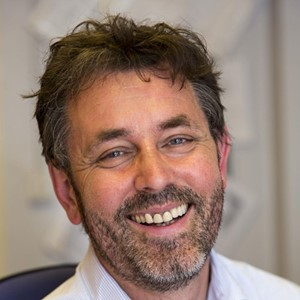
Professor Andrew Taylor is the Director of Innovation at GOSH, responsible for the Digital Research, Innovation & Virtual Environments (DRIVE) unit (www.goshdrive.com), the Cell & Gene Therapy manufacturing facility (www.gosh.nhs.uk/our-research/our-research-facilities/gene-and-cell-therapy-facility/), and a new Paediatric Innovation hub. He has held University and Hospital leadership and management roles over the last decade and was the operational lead for GOSH during the first phase of the COVID-19 pandemic in March 2020. Clinically, he is an expert in cardiovascular imaging and has established the Centre for Cardiovascular Magnetic Resonance Imaging at GOSH.
Areas of expertise:
- Use of data and AI in healthcare (including data & AI governance)
- Use of virtual reality, computer modelling, and 3D rapid prototyping in healthcare
- Development of new cardiovascular medical devices
- Cardiovascular imaging in congenital and acquired heart disease
- Medical leadership and management
Throughout his research and clinical career, one of his main focuses has been to attract and subsequently mentor young and enthusiastic clinicians, scientists, computer scientists, and engineers – this has included individuals who now lead centres around the World.
PROFESSOR ANDREW TAYLOR
Director of Innovation, Great Ormond Street Hospital for Children & UCL
Shared session on NIHR HRC in Paediatrics and Child Health: “Child Health and Artificial Intelligence Network (CHAIN) Theme”
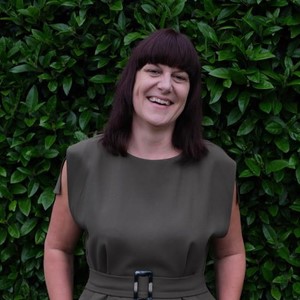
Philippa is Head of Implementation at XR Therapeutics. Building on 9+ years of clinical-academic research working with Newcastle University and CNTW NHS Trust therapists and children and young people, XR Therapeutics’ treatment combines traditional talking therapies / CBT with graded exposure delivered using XR (Extended Reality) technology across a wide range of technological interfaces.
XR Therapeutics works with NHS Trusts, private providers and charities to improve the effectiveness and increase efficiency of talking therapies treatment for both patients and mental health practitioners.
Philippa has held senior roles at NIHR Devices for Dignity HRC, Yorkshire & Humber Health Innovation Network (HIN) and NHS England, leading digital health innovation programmes to develop digital skills confidence in clinical teams, implement new technologies into routine patient care, and establish networks to connect health professionals, patients, industry, third sector and academia to advance opportunities for digital health to improve care. Philippa also led the Precision Medicine SY Accelerator (P4SY), supporting early-stage precision medicine companies to scale in the North of England.
MRS PHILIPPA HEDLEY-TAKHAR
Head of Implementation & Client Experience, XR Therapeutics
Shared session on the National Centre for Child Health Technology: “XR Therapeutics”
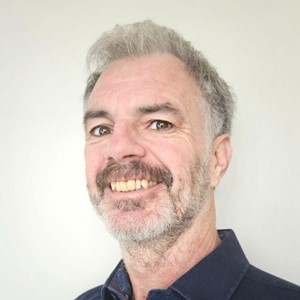
Dr Greg Burch is co-founder and Joint CEO of Tiny Medical Apps, the developer of the Digital Health Passport (DHP). He is an NHS Innovation Accelerator Fellow (2025) and Member of Asthma & Lung UK’s Council of Healthcare Professionals.
Greg works clinically as a specialty doctor in Emergency Medicine in Sussex. Over the last seven years his team has co-designed and developed the DHP to support young people, children and their carers with asthma and epilepsy. The Tiny Medical Apps team has implemented the DHP across ten ICB regions.
Before training in medicine Greg worked in business development in the IT and internet sector. His interests are in building accessible, usable and useful technology and improving medication adherence in long term conditions. Greg is a member of the European network to advance best practices and technology on medication adherence
DR GREG BURCH
Joint CEO and Clinical Director, Tiny Medical Apps
Shared session on the National Centre for Child Health Technology: “Tiny Medical Apps”
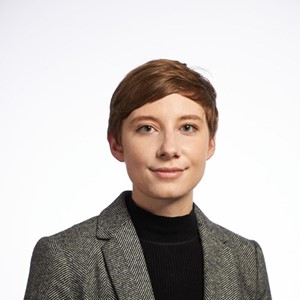
Ari Billig (they/them) holds over 9 years of experience in digital mental health and organizational healthcare. They hold a BS in Psychology and a BA in Economics from the University of Washington and an MBA from Oxford’s Said Business School. Ari’s career began in psychology and neuroscience research before they established and led the mental health division at a medical staffing agency.
Currently, they are the UK Country Manager at Peili Vision, focusing on UK market entry and supporting Peili in reducing waiting lists for ADHD with their web-based screening tool. Previously, Ari served as a Relationship Manager at Kooth, collaborating with ICBs, local councils, and stakeholders to support the adoption of early intervention mental health services. Ari combines their expertise in healthcare and mental health to drive innovative solutions within the NHS.
MX ARI BILLIG
UK Country Manager, Peili Vision
Shared session on the National Centre for Child Health Technology: “Peili Vision”
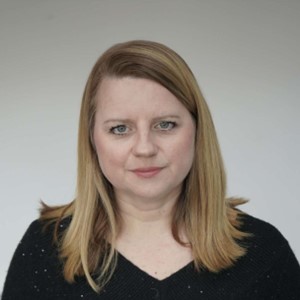
Maddie is the Co-Founder of DigiBete, a multi-award winning NHS funded diabetes self-management Platform and Clinic and patient Support App for all young people and families in the UK. Offering support through essential age-appropriate and tailored video and educational resources, clinic communications features and personal diabetes organisers, food, exercise, carb counting and diabetes technology support.
Maddie, a teacher by profession, has always worked with unrepresented communities including those with challenging behaviour and complex needs, both in the classroom and in wider youth & media projects.
Maddie and husband Rob, identified the need for DigiBete in 2016, following their toddler son’s diagnosis, where he was rushed to hospital and later diagnosed with Type 1 Diabetes.
DigiBete now houses over 300 self-management resources and extends the reach of clinical teams to a more pedestrianised video platform online which can be assessed by anyone, when required. The web platform is free to use and the App is now funded by the NHS Diabetes Programme which is currently being implemented in over 256 Children and Young People’s Diabetes Clinics nationally.
The App has the added functionality of allowing local diabetes teams to create their own personalised digital service, complete with messaging and appointment tracker to support contact.
MRS MADDIE JULIAN
CEO, Digibete CIC
Shared session on the National Centre for Child Health Technology: “Digibete”
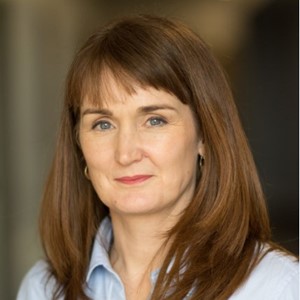
PhD Biochemist, CEO and founder of TriMedika Ltd, medical device manufacturer based in Belfast. As end-of-life carer for her sister, sleep disruption and distress caused by contact hospital thermometers led her to develop a non-contact, hospital grade thermometer now used in hospitals in 21 countries.
She is passionate about ensuring nurses and patients have a voice in device design and fast tracking technology that saves money, gives back time to care and eliminates infection risk. Building devices to remove plastic waste from hospitals is another area of focus for TriMedika innovations.
As an entrepreneur she completed MIT Entrepreneur Development Program in US, and is a member of Maserati Top 100 Disruptors alumni, Dell Women’s Entrepreneur Network Alumni, Finalist in EY Entrepreneur of the year, DBT Export Champion, and participated in Manchester Health Accelerator and KidsUp Accelerator in Sheffield.
She is keen to develop medical devices for children’s health and optimise sensor solutions for them. Many devices are built for adults and not best suited to delivery of care to children.
DR ROISIN MOLLOY
CEO, TriMedika Ltd
Shared session on the National Centre for Child Health Technology: “TriMedika”
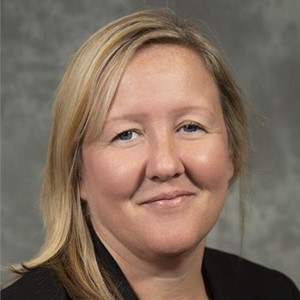
Jenny Preston is the Patient and Public Involvement (PPI) Policy Manager within the Faculty of Health and Life Sciences at the University of Liverpool. For the past 20 years, she has led the development and delivery of strategies to involve and engage children, young people, and families in paediatric health research.
Jenny also holds several key leadership roles in national and international initiatives. She is the PPIE Manager for the NIHR Alder Hey Clinical Research Facility, the Executive PPIE Lead for the NIHR HealthTech Research Centre in Paediatrics and Child Health, and the strategic PPIE lead for projects such as the Experimental Arthritis Treatment Centre for Children (EATC4Children) and the NIHR GenerationR Alliance, a network of Young Person’s Advisory Groups (YPAGs) across the UK and beyond (www.generationr.org.uk).
She is also a co-founder of eYPAGnet, the European Young Person’s Advisory Group Network (eypagnet.eu), which empowers young people and families across Europe to shape paediatric health research.
In addition to her professional roles, Jenny is currently pursuing a PhD at the University of Liverpool, focusing on what meaningful PPI looks like from the perspective of children and young people.
MRS JEN PRESTON
Patient and Public Involvement Manager, University of Liverpool; PPIE Executive Lead, NIHR HRC in Paediatrics and Child Health
“Creating SPACE for Change: Amplifying CYP Voices Through Community Involvement”
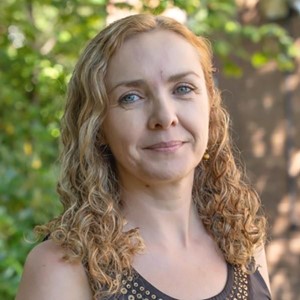
I am a qualified agile project manager and doctoral graduate. I have recently joined the HealthTech Research Centre Network as Deputy COO and to lead the Industry Workstream.
DR SIMONE CROFT
Senior Project Manager and Industry Lead, National Institute for Health and Care Research
Shared session on NIHR HRC in Paediatrics and Child Health: “NIHR HRC Network”

Kathryn Beardsall is an Associate Professor in the Academic Department of Paediatrics University of Cambridge and Honorary Consultant Neonatologist at University of Cambridge Addenbrookes Hospital.
Her research focuses on an interest in the physiology of glucose metabolism and adaptation in the newborn, leading a number of international trials using continuous glucose monitoring in the newborn. The challenges of using devices not designed for the newborn has driven a passion to ensure newborns do not miss out on the opportunities that innovations in medtech offer to other patients.
Her research is driven by her clinical practice and the challenges of supporting newborns in intensive care. She works closely with families and patient groups and as part of a wide multidisciplinary team both clinical and engineering to ensure technologies are designed and developed to be easily integrated into clinical care.
As Paediatric lead for the East of England Research Delivery network she supports the multidisciplinary team to deliver research across the wider paediatric portfolio both in Cambridge and the East of England. She is also co-theme lead for the mind and body workstream of the NIHR Health Tech research Centre in Paediatrics and child health.
PROFESSOR KATHRYN BEARDSALL
Neonatal Consultant, University of Cambridge
Shared session on NIHR HRC in Paediatrics and Child Health: “Mind & Body Integration Theme”

